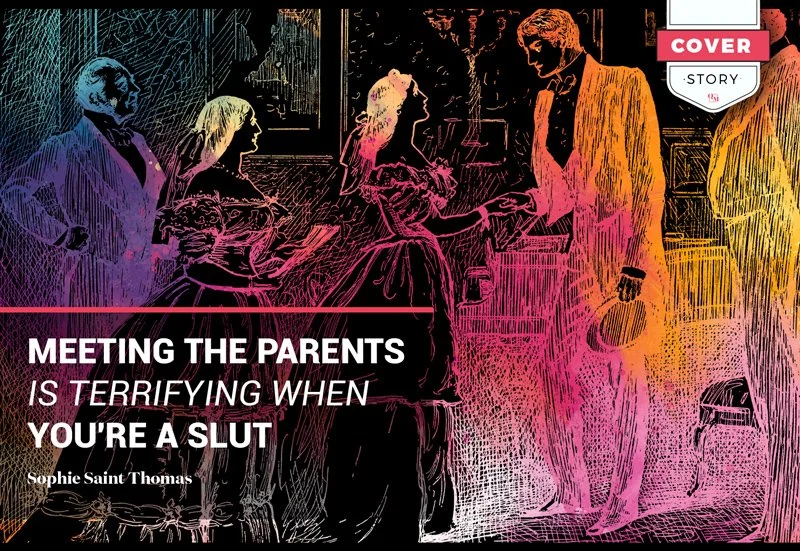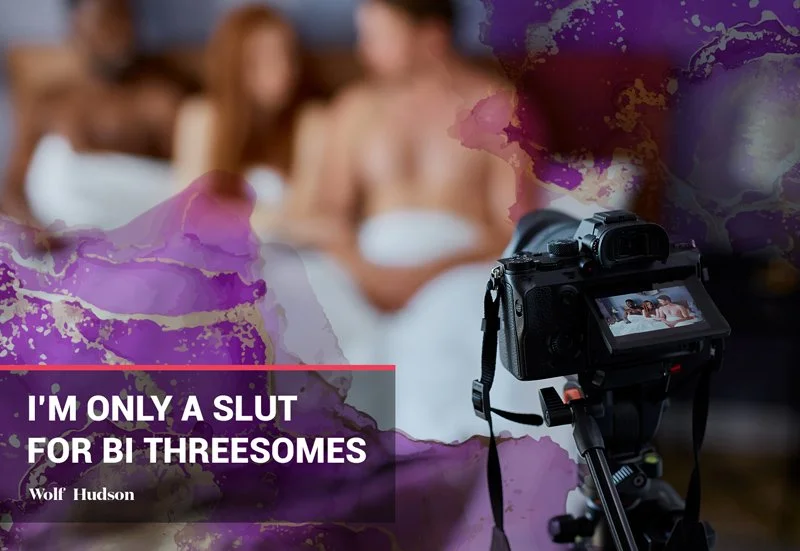Be a Slut, for the Sake of World Peace
“The reason you think being a slut is a bad thing is because you are taught that women are to be sexualized but not to be sexual beings.”
H istorically, the word “slut” has carried with it the intention to socially maim, devalue, and divide. Used primarily to describe women who are sexual in a way outside of what is prescribed, it has been used as a weapon of subjugation.
Controlling women’s sexuality (and the narrative around it) is nothing new. Slut-shaming has perpetuated centuries of sexual violence, entitlement, and arbitrary hierarchical jockeying. Sexism, misogyny, and religious egocentrism have been the bloodline pumping life into the paradigm of sex-negativity. It leads to cultures that dehumanize women, turning them into mere objects and commodities.
But what if the shame was unnecessary, and no one ran the risk of being ostracized from the people and communities they loved, just for having a different relationship with sex than that of their neighbor? At the risk of sounding reductionistic or flippant, it is likely the world would be far more peaceful.
Outlandish? Not really. When you consider the way sex is weaponized, the drawbacks of sex-negativity take a tremendous toll on the individual, relationships, and society.
Sex-negativity instills fear, shame, and control about sex into the collective psyche, which limits accurate and effective sex education. It reinforces standards that do not apply the same for everyone and makes communication more challenging. Yet it also adds an element of taboo that can actually make sex more interesting, fostering a double bind (damned if you do and damned if you don’t). All of which results in heaps of cognitive dissonance. This leads to secrecy and deception about sexuality when there is a fear of being found out or judged, which can engender a ripple effect of trauma. It’s why slut-shaming and other forms of sex-negativity are strongly correlated with anxiety, depression, posttraumatic stress disorder, other mental health conditions, self- and other- directed harm, and suicidality.
When sex is shamed, it can create a scarcity effect. Basic supply and demand models predict that what is less available will be more coveted and generally comes with a higher price tag. Applied to sex, when women are shamed for being sexual, they implicitly become gatekeepers of sexual pleasure. Because of the role sex plays in male social standing, sex becomes a coveted and scarce commodity of worth. Language about sex supports the idea that women “save” their sexuality for their partners, thus limiting her depreciation and serving it up as a gain for her partner. As with any commodity in short supply, those determined to obtain it will spare no expense. Slut-shaming is directly related to the prevalence of deception, coercion, and sexual violence.
Over the past few decades, there has been a shift in how we approach sex (and being a “slut.”) Feminists have participated in the SlutWalk, a march to decry rape culture and end victim-blaming and slut-shaming. The official call to action is to rebrand the word slut to represent sex-positivity for the world’s collective mental health.
To reiterate, sex-positivity doesn’t mean having sex with as many people as you can and embracing every kink possible. While it can include those dimensions, sex-positivity does not require that you integrate every available option into your sexual repertoire. To be sex-positive is to construct a relationship with sex that works for you, refrain from shaming your own sexuality and that of others (even if it is different than yours), speak openly with partners about sexual health histories and safer sex options, and hold space without judgment for people to be on their own journey with sexuality.
If there is one descriptor for humans, it would be diverse. Sex-positivity embraces the diversity of sexual desire, with everyone being able to choose how they approach and actually have sex.
So, define what your sluttiness means to you. Leave room for others to have a different definition of what sluttiness means for them. Remember, diversity is to be expected and celebrated. Embrace your inner slut and the inner slut of those around you. Everyone has a relationship with sex, even if they are abstinent. To be a slut is no longer derogatory. Being a slut is about recognizing that sex-positivity is a tactical move in the offensive against repressive ideologies.
That’s why being a slut actually brings us closer to world peace.
Published Apr 19, 2022
Updated Apr 19, 2023
Published in Issue XI: Slut











